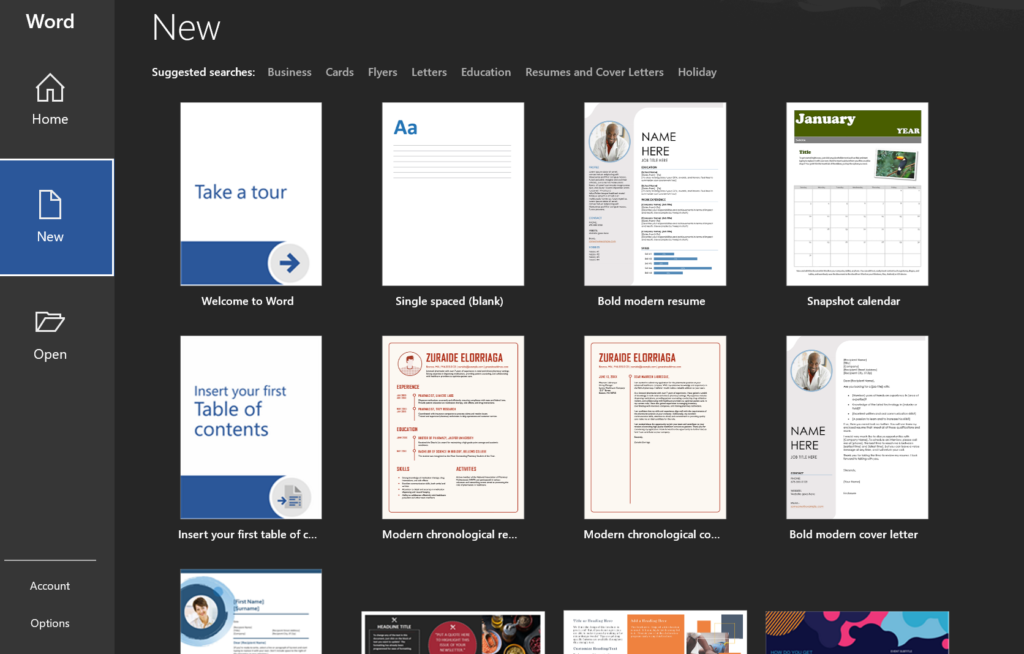Between Docs And Word which one will Grandpa choose? In our previous post, we talked about how convenient Google Docs is, and of course, the older generation will love it as it is easy to use. But it turns out some are still comfortable using Word, but some already choose Google Docs. Despite the comfort, Grandparents have to know the pros and cons between docs and word. When comparing Google Docs and Microsoft Word, both offer excellent word processing tools, but they serve different needs depending on your preferences and the environment you work in. Here’s a breakdown of the pros and cons of each:

Microsoft Word
Pros:
Advanced Formatting and Features:
- Word offers a wide range of formatting options and is better suited for complex documents, like books, legal documents, or anything requiring detailed styling.
Offline Access:
- Word is a desktop application, so you can work offline without any hassle, which makes it more reliable in environments with poor internet access.
Integration with Other Microsoft Office Products:
- Word integrates seamlessly with other Office products like Excel and PowerPoint, enhancing productivity for users in a Microsoft ecosystem.
Powerful Template Options:
- Word provides extensive pre-made templates for resumes, reports, cover letters, and more, making it easier to create professional documents quickly.
More Customization and Add-Ons:
- You can customize Word with macros, add-ons, and advanced styles that aren’t available in Google Docs.
Cons:
Price:
- Microsoft Word is not free, and it requires a Microsoft 365 subscription or a one-time purchase of Office, which may be expensive for some users.
Collaboration Limitations:
- While collaboration is possible in Word through OneDrive, it’s not as seamless or user-friendly as Google Docs’ real-time editing.
Larger File Sizes:
- Word documents tend to be larger, especially when embedding images or other multimedia elements.
Less Flexibility Across Devices:
- Although there is Word Online, the desktop version is still the most fully featured, and you may need to switch between different versions depending on the device.
Google Docs
Pros:
Cloud-Based and Real-Time Collaboration:
- Google Docs excels at real-time collaboration, allowing multiple users to work on the same document simultaneously. Changes are saved automatically in the cloud.
Accessibility:
- Since it’s cloud-based, Google Docs is accessible from any device with internet access, including mobile devices, without needing to install software.
Version History:
- Google Docs keeps a detailed version history, making it easy to track changes and revert to previous versions.
Auto-Save:
- Everything is saved automatically to Google Drive, ensuring you don’t lose work due to power outages or crashes.
Free to Use:
- For most users, Google Docs is free, with plenty of storage available through Google Drive.
Cons:
Limited Offline Functionality:
- While you can use Google Docs offline, it requires prior setup, and its offline functionality is not as smooth as Word’s.
Fewer Formatting Options:
- Google Docs doesn’t offer as many advanced formatting and design tools as Word, which can be limiting for more complex documents.
Dependent on Internet Access:
- Without a good internet connection, Google Docs can feel slow or inaccessible, unless you’ve prepared for offline access.
Limited Features for Large Documents:
- Handling very large or complex documents with heavy images, tables, or advanced formatting can be challenging in Google Docs compared to Word.
In summary, on the above facts I don’t think the older generation is more comfortable using Microsoft Word, in time Google Docs will serve the same purpose as word processing tools as good as Microsoft Word. Both have free customizable templates and are easy to use, but if your grandparents try to use them offline, Google Docs might need some tweaks beforehand. I think your grandparents need to pour their creativity too, coming up next: Introducing Capcut For Grandparents.
